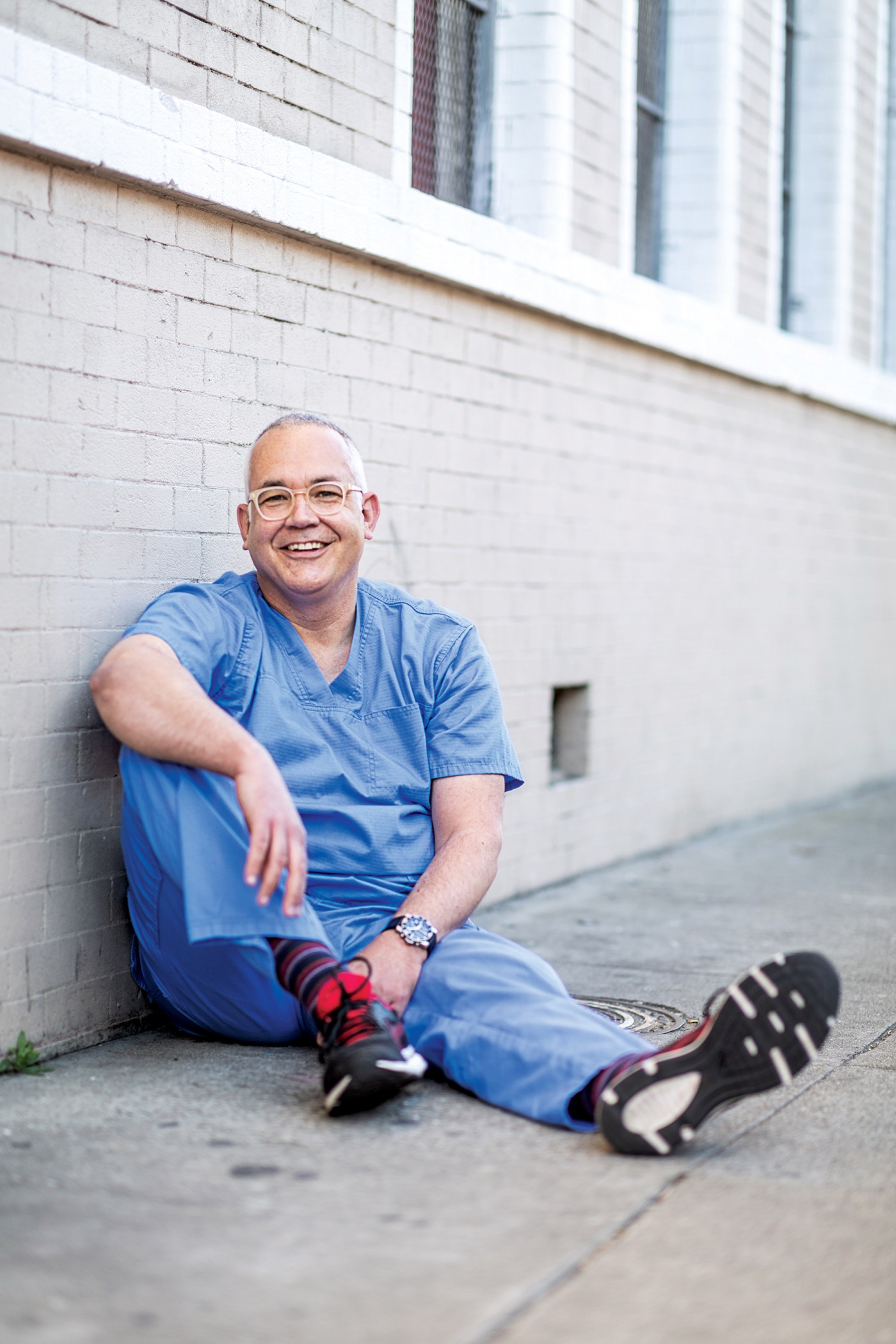Meeting the Need
A nurse practitioner helps bring primary care to San Francisco’s mentally ill and homeless
Many mentally ill people are unable to access basic health services, but Jim Gatewood ’03 AM, ’08 PhD, is there to help meet the need. A
nurse practitioner, Gatewood serves with the Interprofessional Primary Care Outreach for Persons with Mental Illness (IPCOM), designed to bring primary care directly to those suffering from mental health problems in San Francisco.
“What ends up happening is that a lot of homeless folks will end up utilizing the emergency room to get their primary care,” Gatewood says. “They might go there for any number of problems that would be better served by people doing primary care like myself.”

There are around 10,000 homeless people in San Francisco, a city of under one million with a well-documented lack of affordable housing. Between 30 and 40 percent of the homeless population suffers from mental health issues.
Launched in 1995 and staffed entirely by nurse practitioners, IPCOM works directly with psychiatric patients in program houses run by the nonprofit Progress Foundation.
“It just really hit home to me how important it is to be treating both people’s physical and mental health together—we have to treat those two things together,” says Gatewood, who is a fourth-generation nurse.
People with severe mental health issues generally die earlier than their peers. A holistic approach encompassing physical care is essential to helping manage their mental health problems, Gatewood says.
Each week for IPCOM, Gatewood reviews the medical records of patients at a range of residential treatment centers run by the Progress Foundation, which provides care and support to the mentally ill. Gatewood meets with patients and helps link them with primary care providers. Patients often lack insurance and Gatewood helps them with medication refills, monitoring chronic ailments, and providing educational health resources. It is far different from his original career in American studies, for which he wrote a dissertation on the iconic City Lights bookstore in San Francisco. Yet Gatewood says he applies the skills he learned in the humanities every day, especially in connecting with patients.
There are plenty of challenges to working with mentally ill and homeless patients, many of them unforeseen by standard healthcare directives. A diabetic may be prescribed insulin but, lacking a home, has nowhere to store the medication. Gatewood says he often sees patients described as “noncompliant” or “difficult” in their case files, which bothers him. He urges more empathy and awareness about the systemic issues producing homelessness and perpetuating mental health and substance abuse problems.
“I’m humbled by the life experiences of the patients I see and how resilient they are,” he says. “How incredibly brave they are to tackle some of the enormous challenges that they face in their lives.”





